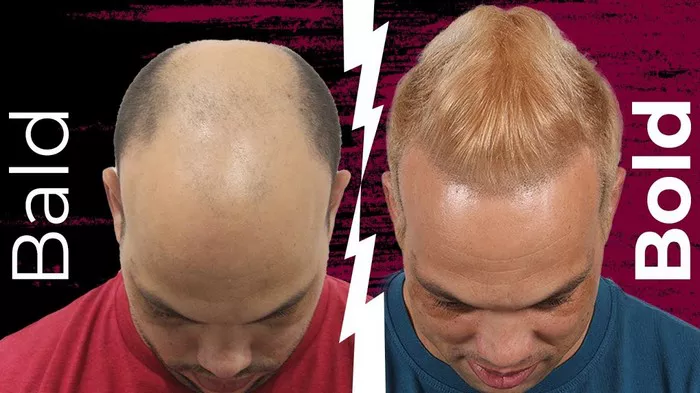Hair loss is more than a cosmetic concern. It can deeply affect one’s self-esteem, social interactions, and overall mental health, often leading to feelings of isolation, anxiety, and depression. But for those who take the step to reclaim their appearance, the transformation can go beyond physical change. This is the story of one individual whose decision to undergo a hair transplant not only changed how they looked but also how they felt about themselves and their place in the world.
The Silent Struggle: Living with Hair Loss
Hair loss is a common experience that can begin early in life. According to the American Hair Loss Association, about two-thirds of men experience some degree of hair thinning by the age of 35, with that number rising to 85% by age 50. While men are more commonly affected, women also suffer from hair loss, with approximately 40% of those affected being female. The emotional toll can be particularly challenging for women, as societal standards often place a higher value on a woman’s appearance, making hair loss a source of shame or self-consciousness.
For many, hair loss leads to avoiding photos, withdrawing from social situations, or feeling less confident in both personal and professional settings. In a world where full, healthy hair is often seen as a symbol of youth and vitality, losing it can feel like losing part of one’s identity.
The Tipping Point: Deciding to Get a Hair Transplant
The decision to undergo a hair transplant is a significant one, often made after much contemplation and self-doubt. For many, it’s not just about thinning hair—it’s about what that hair loss represents. Take John Doe, a patient at Vera Clinic, for example. “I remember dreading any social event,” he recalls. “It wasn’t just the thinning hair—it was what it represented: feeling older than I was, not feeling seen.”
John’s experience is far from unique. Hair transplant procedures have become increasingly common in recent years. According to the International Society of Hair Restoration Surgery (ISHRS), hair restoration surgeries saw a 16% global increase in the last five years, following a decline due to the COVID-19 pandemic. More people are turning to hair transplants as a way to regain control over their appearance and, by extension, their lives.
Why Opt for a Hair Transplant?
The popularity of hair transplants can be attributed to their high success rates. Advanced techniques like Sapphire FUE (Follicular Unit Extraction) and post-operative treatments such as Vera Clinic’s exclusive Oxycure Therapy have made the process more effective, resulting in denser, natural-looking hair and faster recovery times. One study has suggested that FUE procedures can achieve success rates as high as 90-95%, making hair transplants a reliable solution for those dealing with hair loss.
The physical transformation often leads to a significant boost in self-confidence. For many patients, the impact of hair restoration goes far beyond the surface, providing a renewed sense of empowerment and improved mental well-being.
The Psychological Benefits of a Hair Transplant
The mental health benefits of a successful hair transplant are profound. For John, the post-transplant experience was nothing short of life-changing. “For the first time in years, I looked in the mirror and recognized myself,” he says. “The sense of empowerment is hard to put into words.” The emotional impact of hair restoration is undeniable. According to a survey conducted by Vera Clinic, 92% of patients reported feeling more confident within six months of their procedure, highlighting how hair transplants can restore not only hair but also a sense of self-worth.
The American Psychological Association has found that improving one’s physical appearance, particularly in ways that align with self-perception, can lead to increased self-esteem and reduced anxiety. In this sense, a hair transplant can be more than just a cosmetic fix—it can be a powerful tool for mental health recovery.
The Connection Between Hair and Mental Health
Few realize the deep connection between hair and mental health. Scientifically, hair loss has been linked to changes in the brain, particularly in areas associated with self-perception and social identity. Studies published in the National Library of Medicine have shown that hair loss can activate the brain’s limbic system, which is responsible for emotions, including anxiety and self-worth. This response likely stems from evolutionary factors, where outward signs of health, such as thick hair, signaled social status and fitness.
Research has also shown that hair loss can disrupt the brain’s body schema—the internal map we have of our bodies, which helps define our sense of self. Changes in appearance, such as hair loss, can distort this map, leading to discomfort with one’s own image and an increase in social avoidance. Restoring hair, therefore, may help recalibrate this internal map, offering psychological benefits that extend beyond simple cosmetic improvement.
In fact, studies published in Frontiers in Psychology suggest that hair restoration can significantly improve self-esteem and reduce social anxiety, underscoring that the psychological benefits of a hair transplant go far beyond the physical transformation.
Conclusion
Hair loss can have a profound impact on one’s mental health, leading to a decrease in self-esteem and an increase in social isolation. For many, a hair transplant offers more than just a cosmetic fix—it can be a transformative experience that restores both appearance and self-confidence. As more people choose to undergo hair restoration procedures, the benefits extend well beyond improved hair density, offering a renewed sense of identity, empowerment, and emotional well-being. For those struggling with hair loss, a hair transplant may not just change their look—it can change their life.
Related topics:
- Venture Catalysts Invests in Assure Clinics’ Growth in Dermatology and Hair Restoration
- Roquette Unveils Sustainable Pea-Based Film Formers for Beauty Products
- Eco-Friendly Hair Care: How Three Products Saved Me $200


